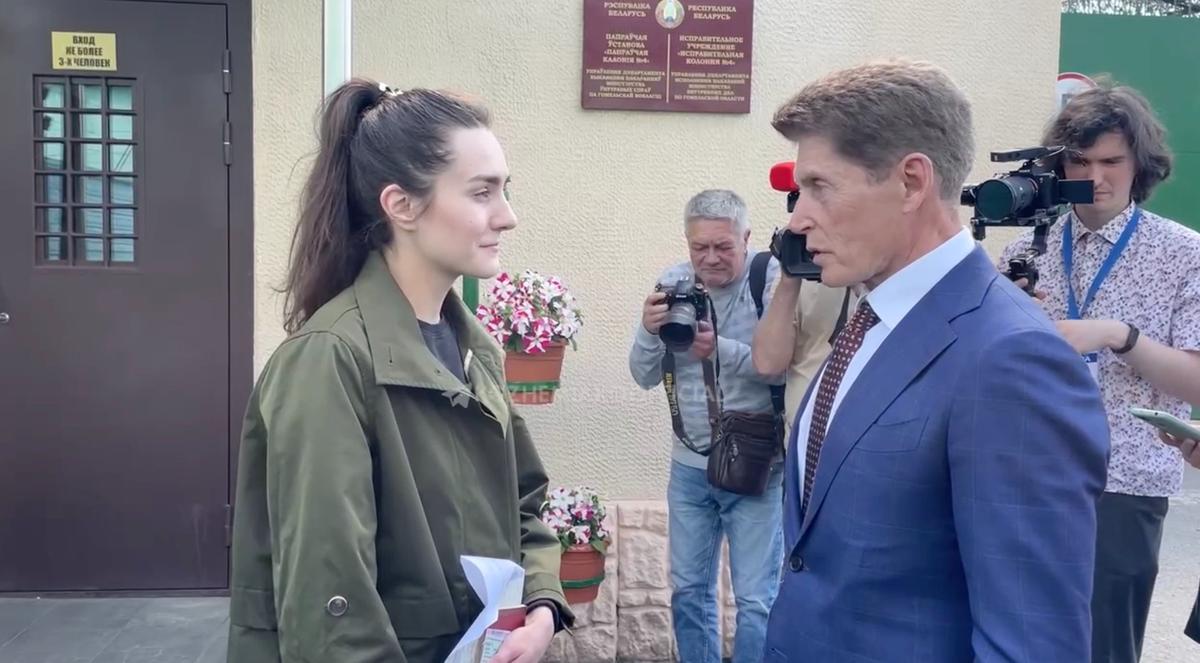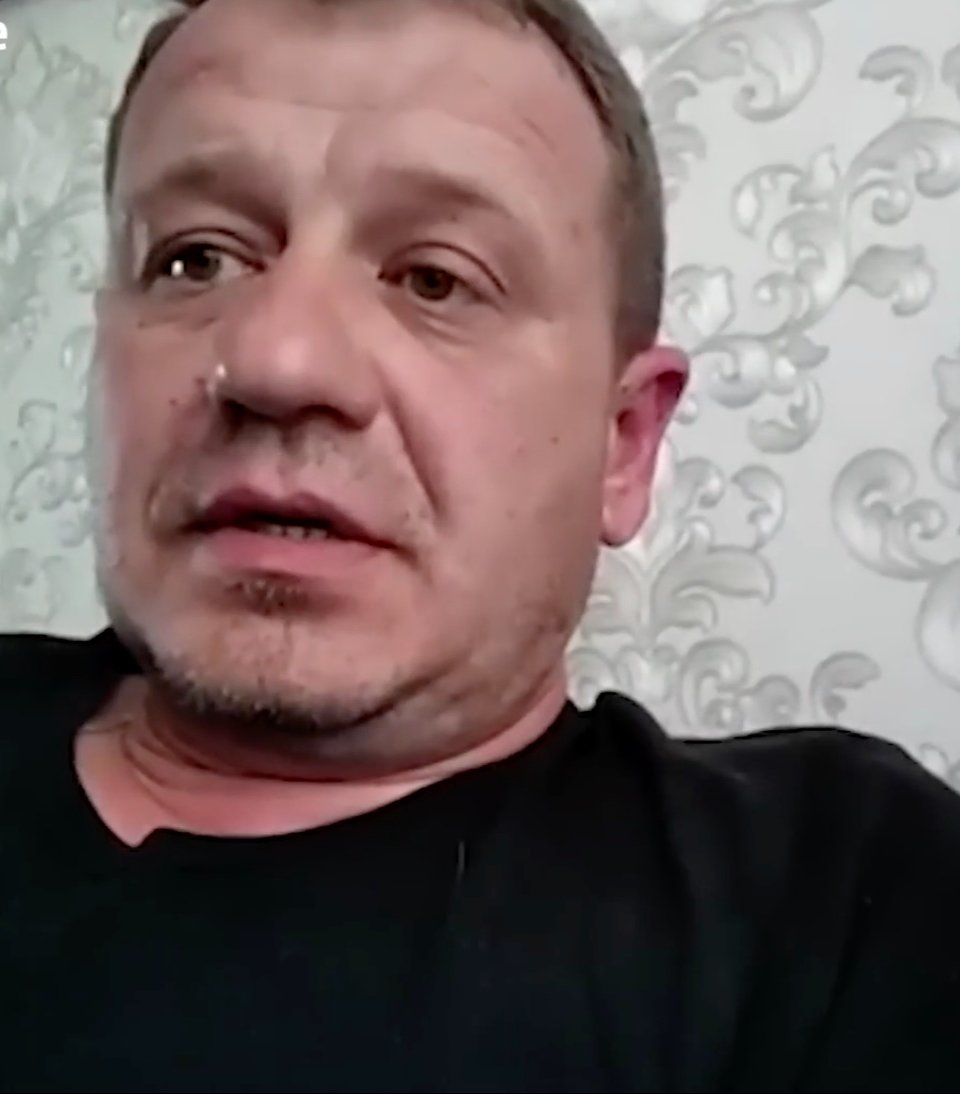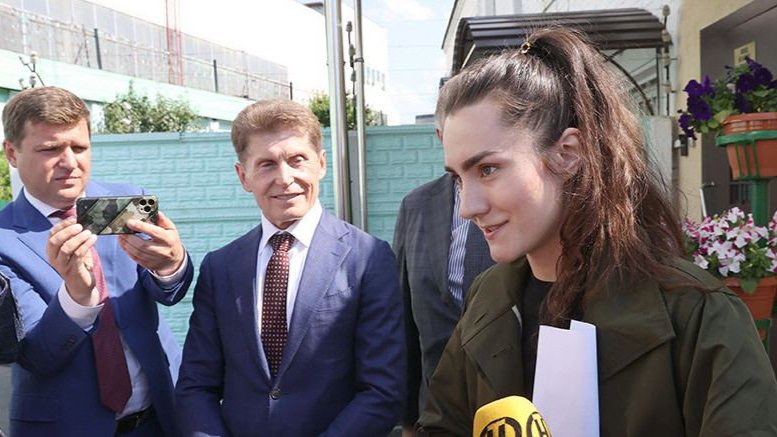Sofia Sapega, a Russian national, was hauled off a Ryanair flight in Minsk back in 2021 and subsequently arrested alongside her then-boyfriend, opposition journalist Raman Pratasevich. She was sentenced to six years in Belarusian prison in May 2022. Now, she has been pardoned by Belarus’ Alyaksandar Lukashenka and released from prison. Iryna Khalip has spoken with Sofia’s fellow inmate to find out the conditions of her imprisonment within the so-called “ninth unit” for political prisoners.
We spoke to a former political prisoner from the same colony, Volha Klaskouskaya, half an hour before the news of Sapega’s release from the Homiel prison arrived.
Volha told us that Sofia had been under enormous pressure there. At first, I couldn’t understand why: usually, they put pressure on those who didn’t admit guilt or those who try to resist while already in prison.
Sofia’s case was clean-cut: confession of guilt, cooperation with the investigation, and a petition for pardon addressed to Alyaksandar Lukashenka. She looked like an ideal prisoner. But the reality was different.
“The colony administration considered Sofia their enemy, simply because she used to run the ‘Black Book of Belarus’, a Telegram channel that published personal data of law enforcement officers,” says Volha. “So the prison staff loathed her. Shortly before my release, I stood up for the ninth [prison] unit [that Sofia was in]. They were forced to sew sheets for the whole colony. I was summoned to the commission on penalties. The head of the colony, Talstenkau, said: ‘What is your business with the ninth unit? You’re sitting quietly in the third, and nobody touches you. Sapega’s in the ninth, and as long as she’s there, the squad will suffer.”
The ninth unit is the so-called “press unit”. This unit is designed to make convicts suffer.
Lawyer Anton Gashinsky told Novaya-Europe back in February: “Sofia will be handed over, but she must suffer first to get freedom. After hearing that a request had been filed to transfer her to Russia to serve her sentence, I got threatening phone calls from Russians: ‘We don’t need Sapega! Let her stay there!’”
The lawyer turned out to be right. Sofia Sapega’s petition for clemency was registered in the office of Penal Colony Number 4 in Homiel on 24 June last year. She wrote that she had committed the crime due to her youth and stupidity. Three weeks earlier, Alyaksandar Lukashenka said that he “felt sorry for the girl”. “We have to solve the problem. She is a Russian, there’s an existing practice. We can transfer a Russian citizen to Russia and let her serve her sentence there or let them do whatever they want,” Lukashenka said.
It seemed at the time that Sapega would be released in a few days, a few weeks at most. But her pardon was refused. “You must suffer first to get freedom.”
“We worked the same shift at the factory,” says Volha Klaskouskaya, “and we became friends. Sofia is a very well-mannered, intelligent girl. And the administration hated her as much as those who rebelled. It was very hard for her. The deputy head of the colony once told me openly: ‘Why are you sticking up for Sapega? You’ll never make me feel sorry for her!’ And then he got all white and said: ‘For what she did, she should sit on the slop bucket and eat shit!’ I went cold, I was so scared for Sofia. I think she only got through because she had written a pardon petition. And before I was released, the warden said: ‘If you want to get even with me, don’t look for my address; ask Sapega. Just keep in mind that I’m a perfect shot.’ It was a sore subject for them because her Telegram channel ‘Black Book of Belarus’ published their addresses and phone numbers. I think the petition Sofia wrote may have saved her life.”
Support independent journalism
“But there were constant provocations against her: she gave another girl a cigarette and was punished immediately,” Volha says. “Although everyone shares cigarettes, it’s normal. But only political prisoners — especially Sofia — are penalised for this, deprived of visits and parcels.
Alyaksandar Kuznetsau is the most brutal operative in Sofia’s unit. He used to think up ways to bully the girls in the unit every day.
For example, almost every day, he gave the following task: half of the squad had to crumble laundry soap, and the other half whipped it into foam with toilet brushes. And then the whole squad washed the floor with this foam, making sure to draw eights with the rags: if there are no well-drawn eights, no score. The girls called it a “foam party”. Or in any weather — rain, snow, or heat — he would line up the squad near the barracks and make them read the house rules. <…> There are “special” convicts there, whose task is to provoke conflicts with political prisoners. It’s already hard enough in the colony, but it’s three times as hard in the “press unit”. It’s a concentration camp.

Sofia Sapega and Oleg Kozhemyako. Video screenshot
There were numerous attempts to release Sofia from this concentration camp. After the clemency petition was rejected (for the formal reason of “not having served half her sentence”), the lawyer and relatives began to seek the transfer of Sapega to serve her sentence in the Russian Federation. To do this, at the family’s request, the Russian Ministry of Justice had to contact the Prosecutor General’s Office of Belarus and obtain formal consent to transfer the prisoner. A court in Russia would have to determine the term of imprisonment under local law, and the Belarusian authorities again had to agree with the term that the Russian court would set. This is a complicated bureaucratic procedure that could last for years.
On 1 June, a court hearing on Sapega’s transfer to Russia was set to take place in Moscow, but the judge decided to move it to Smolensk. And on 7 June, Sofia was unexpectedly released — at the request of Russia’s Primorye region governor Oleg Kozhemyako. Immediately after Kozhemyako met with Lukashenka in Minsk, Sofia was pardoned and released from the prison. Kozhemyako came to meet her.
In the evening, he wrote on his Telegram channel: “Our countrywoman Sofia Sapega got a unique chance to start her life anew. She is free after my appeal to the President of Belarus, Alyaksandar Lukashenka. He was sympathetic to Sofia’s parents’ pleas for leniency. Lukashenka signed the pardon decree right after our meeting. Only a wise head of state and a strong person can take such a step.”

Sergey Dudich, stepfather of Sofia Sapega. Video screenshot
“It was a surprise for all of us,” Sofia’s stepfather Sergey Dudich told Novaya-Europe. “It was probably our president’s goodwill, plus Governor Oleg Kozhemyako’s involvement, and everything came together. Sofia is doing well, although she may not have realised yet that everything is over. She’s overwhelmed and very grateful to everyone involved, including your newspaper, for your help and participation and for being with our family all these years. So far, Sofia has no plans; she is enjoying her freedom. When she arrived home, she immediately went to bed.”
I asked Sofia’s father whether his daughter might now be used in Russian propaganda.
“Let’s leave that for now. I can’t comment on any of this,” he replied.
Sofia Sapega was deprived of freedom for two years and two weeks — first under house arrest, then in a pre-trial jail and in prison. Meanwhile, her ex-boyfriend Raman Pratasevich, who was arrested alongside her in 2021, got married, gave hundreds of interviews to Russian and Belarusian propagandists and integrated perfectly into the Belarusian reality. According to attorney Anton Gashinsky, Pratasevich testified against Sofia, which formed the basis of the charges. Now, it’s time for Sapega to move forward — after all, she managed to survive and wasn’t broken down by the “ninth unit”.
Join us in rebuilding Novaya Gazeta Europe
The Russian government has banned independent media. We were forced to leave our country in order to keep doing our job, telling our readers about what is going on Russia, Ukraine and Europe.
We will continue fighting against warfare and dictatorship. We believe that freedom of speech is the most efficient antidote against tyranny. Support us financially to help us fight for peace and freedom.
By clicking the Support button, you agree to the processing of your personal data.
To cancel a regular donation, please write to [email protected]

